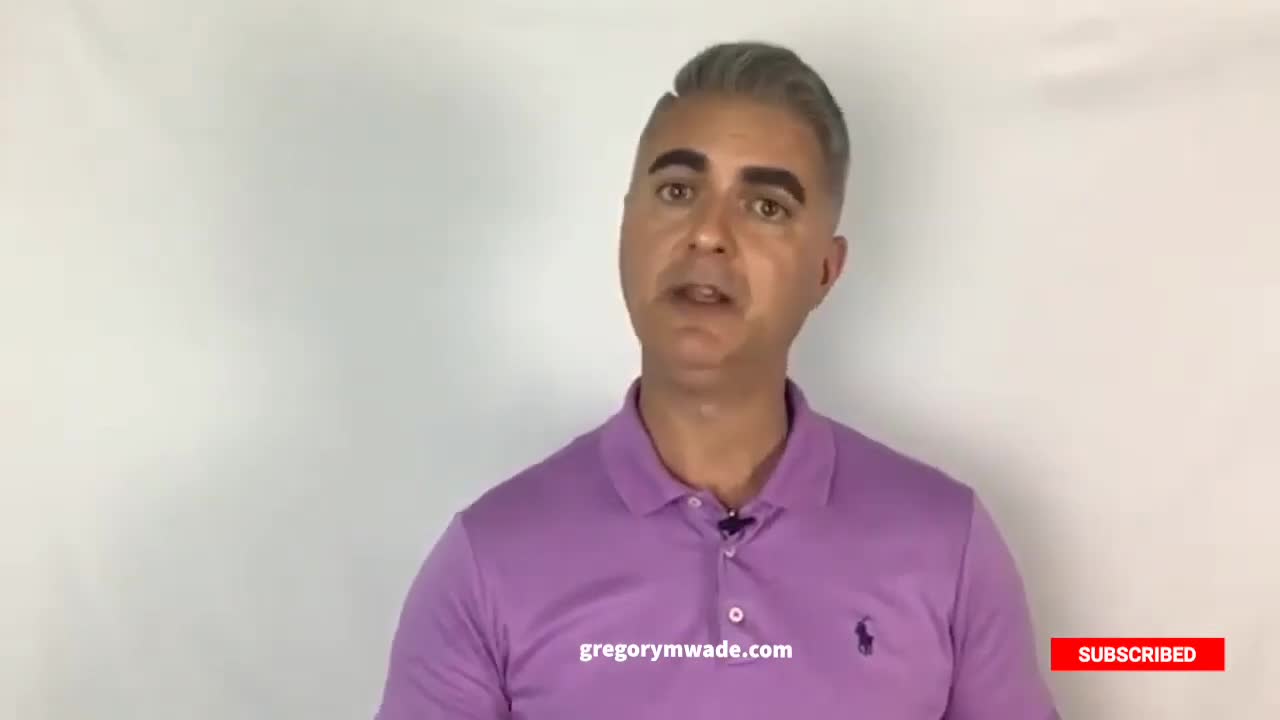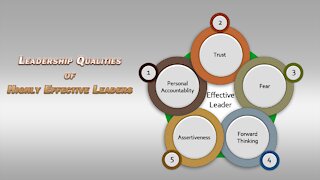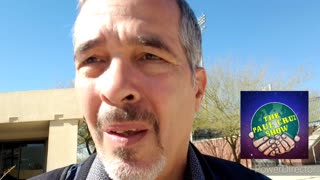Premium Only Content

Leadership is about effective communication
With employee engagement levels at an all time low, it's critical as a leader to ensure that you're focusing on your communication skills. One of the most important aspects for a leader is to ensure that you're communicating with effectiveness and with quality. Many of you have seen my videos in the past and you know that I'm advocating the implementation of a high performance (HPT) team environment. Now this is critical to your communication skills. Now, why is that?
Within that HPT environment is a strong level of trust and integrity. It provides the leader with the platform and the opportunity to communicate effectively, frequently, and with quality. Now, how do you do this? Typically what you've seen in the past is more representative of hierarchical or traditional organizations, your town halls, your fireside chats. Now, I would advocate that you use technology as a means of ensuring a great level of communication.
Many of you have used Slack. If you're a Microsoft office you'll use Teams. I certainly do advocate using one of those platforms as a collaboration tool. They are a great way of making sure that you're communicating both what your objective is and then how everybody's aligning around that objective. It gives you the opportunity to use that platform as well to communicate. What I would also advocate and particularly if you're leading a global organization is use again technology, use video conferencing capabilities like Zoom to be able to communicate and broadcast your message out on a regular basis to your team. And I think it's really important is to recognize as well that yes you may have that office environment and people around you and you can communicate with them, the water cooler talk or you can have side chats, etc, but you have to make sure everyone across the entire team feels included no matter what the time zone.
It's really important that you spend time in one-on-one scenarios and they can be scheduled. However, I think more critically is ensuring that you set the expectation that when people do come in to have those one-on-one conversations with you, that there's an actual agenda.
How many of you out there have run into situations where you walk into that one-on-one and you really don't know what you want to talk about or you just sort of make stuff up because you know you have the half hour? Make sure you set that expectation from day one that there's an agenda, a purpose, and an outcome for the one on one sessions that you have.
Have regular team meetings. Now, how many meetings do we have every single day? Of course, what's important, is to ensure that it (the meeting) is a two way. Don't have these kinds of meetings where you are sitting in the lead chair and you go around the horn giving people an opportunity to give you an update. How meaningful is that? I've sat through many of those meetings and I can tell you not only are they boring but they're ineffective.
If it's a two way street, you challenge the individual within your organization to come forward with where they stand in terms of reaching objectives but at the same time give them an opportunity to pose questions, to present challenges, and to look to you for context and input to how to overcome those particular challenges and obstacles. Of course, a lot of pre-work has to be done as well to get to that point but the fact of the matter is that these kinds of conversations, have to be two way. Please don't just make them one way.
In my past videos you may have also seen that I recognize a number of leaders who are excelling at their use of social media. And something again, particularly for aspirational leaders, to recognize that you can accel, you can set yourself apart from your counterparts and your peers with your effective use of social media and those platforms to ensure that you're communicating effectively with quality and with context.
At the same time don't hide behind social media, ensure that there's also that personal connection and that personal interaction. For those again who have global organizations make sure that you travel outside of HQ. Challenge yourself. You've hopefully got the motivation. Spend the time, sit down with your team, your senior leadership team on those markets, and take the time to actually hear from the grassroots.
You know what? One of the most effective means as well that I've seen from leaders and I've done this myself, is particularly when you're in international markets take the opportunity to set yourself out in a social setting. Sit down with eight to 10 individuals, give them the opportunity to let their hair down, ask you some of the hard questions, challenge you, and then give them context and input back. Don't just give them back corporate speak. Tell them the goods, give them the idea as to where you stand from the company perspective and how important and how meaningful they are to your success.
-
 5:12
5:12
Transforming Our Understanding
4 years ago $0.01 earnedThe Importance Of Effective Communication
40 -
 3:04
3:04
WKBW
4 years agoTaxpayers raise concerns about district leadership costs
121 -
 15:05
15:05
Overpower Oceans Leadership Channel
4 years agoSurprising Leadership Facts You May Not Know About Top Leadership Qualities
551 -
 2:39
2:39
WEWS
5 years agoEffective Leadership Academy helping students, parents with back-to-school transition
6 -
 30:49
30:49
California Insider
4 years agoCalifornia Legislator Warns About State’s Extreme Leadership | CA Assemblyman James Gallagher
1341 -
 23:41
23:41
Maggie3
4 years ago $0.01 earnedAnimal Communication Q/A
213 -
 0:53
0:53
STLNutritionDoc
4 years agoBody communication
43 -
 20:01
20:01
Roy Edwards Leadership
4 years agoLeadership Model
53 -
 2:46
2:46
Leadership Moments with Pastor Devin
4 years ago $0.03 earnedLeadership Moment 1
6531 -
 0:48
0:48
MartialArtsofSales
4 years agoWhat is True LEADERSHIP?
84